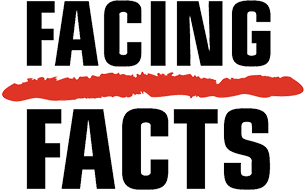Ongoing IGO platforms for connection with national authorities and CSOs on hate crime reporting, recording and data collection
These platforms are space for connection and allow national authorities to feed into the development of international norms, standards, guidelines and activities relating to hate crime reporting, recording and data collection.
There is an existing informal framework of National Points of Contact meetings.[1] CSOs are also often invited to attend specific sessions.
Meetings of the High Level Group on Racism and Xenophobia, established in 2016 allow for EU Member States to feed into European hate crime policy and has led to the development of several principles documents, including on police hate crime recording, cited in this document. The High Level Group on Racism and Xenophobia and other forms of Intolerance includes standing membership of EU level network CSOs and ad-hoc attendance by national CSOs. As explained on its home page, “The High Level Group is intended as a platform to support EU and national efforts in ensuring effective implementation of relevant rules and in setting up effective policies to prevent and combat hate crime and hate speech. This is done by fostering thematic discussions on gaps, challenges and responses, promoting best practice exchange, developing guidance and strengthening cooperation and synergies between key stakeholders.”[2]
ECRI is made up of a national representative from each of the member states of the CoE. The body develops and publishes General Policy Recommendations.[3]
Ongoing action by IGOs to connect with national authorities and CSOs on hate crime reporting, recording and data collection
ECRI country visits rely on gathering and reviewing national data on hate crime in partnership with national authorities. The precise methodology is not in the public domain.[4]
FRA regularly publishes general and specific hate crime victimisation surveys that can be used to inform hate crime policy at the national level.[5]
FRA regularly requests information on States’ hate crime recording and data collection methodologies.[6] Its most recent report presents a detailed comparative overview of States’ approaches.[7]
IGOs publish guidance and guidelines that can be used to inform policy and practice at the national level. These are referred to throughout this document.
Although not part of OSCE Ministerial Commitments, ODIHR Annual Hate Crime Reporting includes information about hate incidents submitted by CSOs.[8]
The Committee on the Elimination of Racial Discrimination will consider and publish information from CSOs, including on hate crime as part of its regular review of the implementation of iCERD at the national level.[9]
ECRI reports include information from CSOs, however there is no method in the public domain explaining how this is done.
FRA’s Fundamental Rights Platform provides a mechanism for connection and cooperation on a range of areas, including hate crime.[10]
FRA regularly publishes general and specific hate crime victimisation surveys that can be used in CSO advocacy at the national level.[11]
IGOs publish guidance and guidelines that can be used to inform CSO practice and advocacy at the national level. These are referred to throughout this document.
«PREVIOUS BACK TO TABLE OF CONTENTS NEXT»
[1] See for example, OSCE/ODIHR Tolerance and Non-Discrimination Department (2018, 16 November).
[2] European Commission (2019, 18 March).
[3] See Council of Europe Portal (2019b).
[4] See European Commission against Racism (ECRI) and Intolerance and Council of Europe (n.d.); See also Council of Europe Portal (2019a).
[5] European Union Agency for Fundamental Rights (FRA) (2019d).
[6] See European Union Agency for Fundamental Rights (FRA) (2019a).
[7] European Union Agency for Fundamental Rights (FRA) (2018b).
[8] OSCE/ODIHR Tolerance and Non-Discrimination Department (2019b).
[9] United Nations Human Rights Council (2019a).
[10] European Union Agency for Fundamental Rights (FRA) (2019b).
[11] European Union Agency for Fundamental Rights (FRA) (2019d).


 Facing Facts is co-funded by the Citizens, Equality, Rights and Values Programme
Facing Facts is co-funded by the Citizens, Equality, Rights and Values Programme